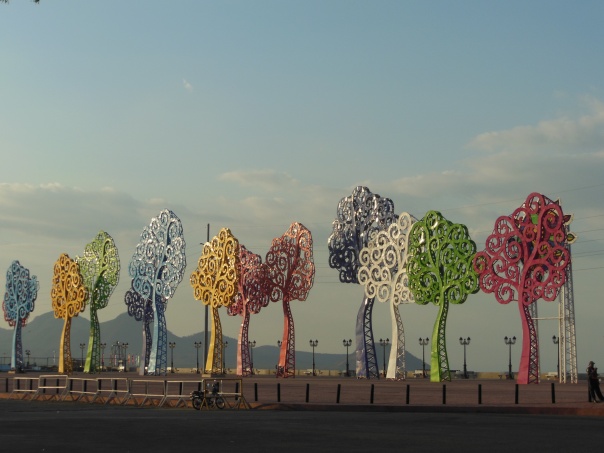The preceding article was posted at 1:14 AM EST, the time that my flight was scheduled to take off from Nicaragua. This article was posted at 5:43 AM EST, the estimated landing time in Ft. Lauderdale.
Originally I had envisioned a grand follow-up to the preceding article. I wanted to reflect on a year’s more experience in Nicaragua, present some economic research, and pontificate about Capital in the 21st Century. Unfortunately, time got away from me and I have not had sufficient time to formulate, research, or write the article. I still very much intend to (I have a brand new Lenovo X1 Carbon awaiting me at home in NY and I know exactly what the first assignment I complete on it will be), but for now I can present a few brief points and observations:
- First, I think it is clear from the article that I disliked much about the Sandinistas. This is still the case. However, I no longer think that removing them from power is the ideal solution. The opposition in Nicaragua is very disorganized and arguably more corrupt than the Sandinistas. Nicaraguans themselves need to band together, from the left to the right, and denounce corruption in all of its forms, in both parties. I was extremely pleased that Guatemala was able to peacefully do just that last year, and I see no reason why a popular movement cannot improve the state of politics in Nicaragua as well.
- I still believe that the Trees of Life are an exaggeration. Furthermore, it is wrong to use public funds for propaganda in the absence of a thoroughly democratic budgeting process. Even more so, I found out that the trees are built by Ortega’s son’s metallurgy firm. I haven’t bothered to check, but any guesses as to whether the fabrication went to a competitive bid? All of that being said, the trees are not ugly and making Managua (or León for that matter – Chayo gave us our first one as a Christmas present in December) a worse place to live. They have been an integral part of the revitalization of Old Managua which is certainly a boom for the city’s economy and quality of life standards. What the Trees of Life need is a balance – democratic budgeting that balances urban beautification and aesthetics with other needs of the city and the country.

- One of the main points of my article was the idea of “Group Based Development.” I now realize that that is nothing new. It has been around for decade, especially in the form of gender based development. Development organizations and governments have been working with women since the 1970’s. I suppose I did not recognize this at first because of how disillusioned I am with the current state of gender based development. My main complaint is that it can be extremely gender normative. Organizations and governments tend to develop the skills of women only in fields that we traditionally associate with women, such as textiles, jewelry, and food preparation. What they should be doing is helping women access the most productive industries in society. Furthermore, development organizations and governments should be working with men to give women access to these more productive fields. Lastly, organizations and governments should be working with men to have them more highly value traditional women’s work so that wages go up and men begin to work in these fields as well.
However, I still think that group based development can be further emphasized in development. Poverty may be entrenched in society because of the structures and institutions of society. Without directly addressing the structures of society development organizations are not going to make much progress. However, if we work with underprivileged groups within this system we may make more progress. Women are not the only marginalized group in society. If government and society are effectuating the marginalization then external support is important to accelerate change (I certainly don’t want to say that a marginalized group can’t help itself – it has certainly happened before, but external support can be helpful as well).
- Lastly, my opinions on the charter cities has turned very negative, especially after having traveled to Honduras and read more about the state of politics in that country. The extractive institutions in a country may very well be the corporate class, so ceding them power over municipalities is not likely to change anything. I am currently writing an article on my trip to Honduras and will write more about this in the next few weeks.
